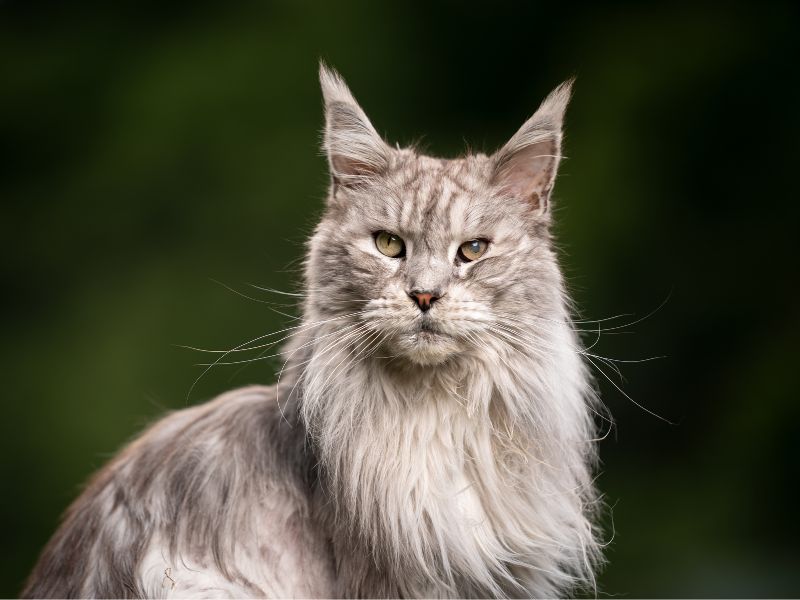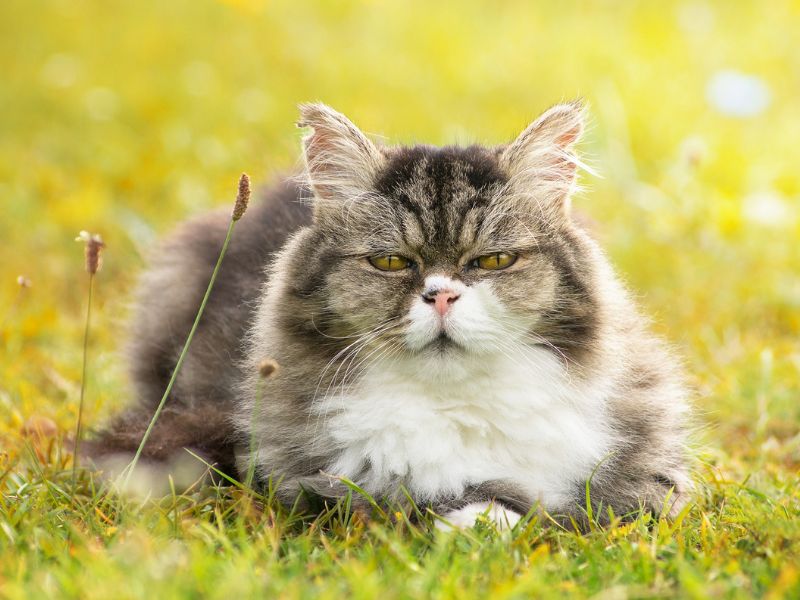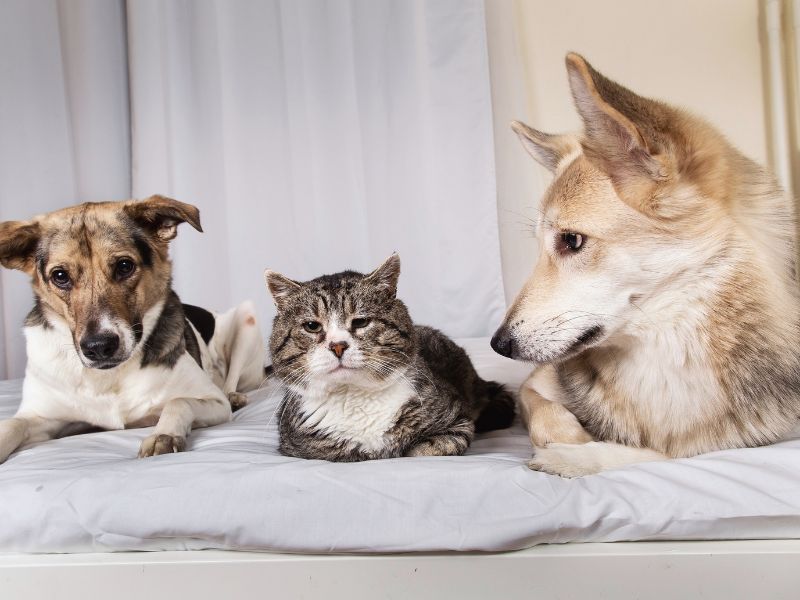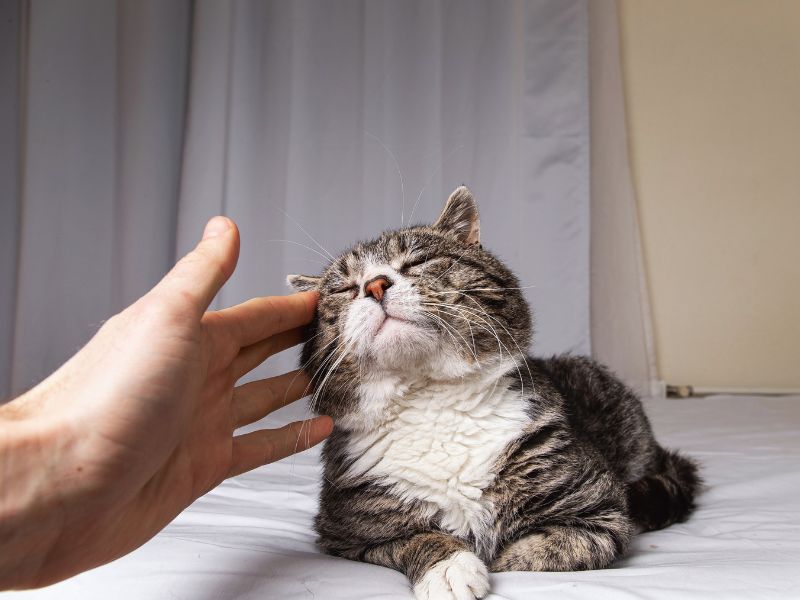As our feline friends age, it is important for us to provide them with the utmost care and attention. Just like humans, cats experience various physical and cognitive changes as they reach their golden years. That’s why understanding the best practices for caring for very old cats is crucial to ensuring their health and well-being. From dietary considerations to creating a comfortable environment, this guide will explore the essential tips and tricks to help you navigate the unique challenges that come with caring for senior cats. Whether it’s managing chronic conditions, maintaining mobility, or simply showering them with extra love and affection, we will delve into the expert advice that will allow you to provide the best possible care for your aging feline companion. So, let’s embark on this journey of compassion and discover how to make the twilight years of your beloved cat as comfortable and fulfilling as possible.
Understanding the Unique Needs of Very Old Cats
Cats, just like humans, go through a natural aging process that brings about a range of unique needs. It is important to understand these needs in order to provide the best possible care for your senior cat. One of the most important aspects to consider is their mobility. As cats age, they may experience joint pain and stiffness, making it difficult for them to jump or climb as they used to. Providing them with easy access to their favorite spots, such as cozy beds or windowsills, can greatly enhance their quality of life. Additionally, it’s important to ensure that their litter boxes are easily accessible and have low sides to accommodate any mobility challenges.
Senior cats may also experience changes in their vision and hearing. It’s important to create a safe environment for them by keeping pathways clear of obstacles and providing them with familiar landmarks to navigate around the house. Placing nightlights in areas they frequent can also help them navigate during nighttime hours. Furthermore, it’s crucial to be patient and understanding with your senior cat, as they may become disoriented or confused at times. Offering them reassurance and a calm environment can alleviate their anxiety and help them feel more secure.
Another important consideration is your cat’s dietary needs. As cats age, their metabolism slows down, and they may require a different balance of nutrients to support their overall health. Consult with your veterinarian to determine the best diet for your senior cat, taking into account any specific health conditions they may have. Some older cats may benefit from specially formulated senior cat food that addresses their specific needs, such as joint health or weight management. Providing fresh, clean water at all times is also essential to prevent dehydration, which can be a common issue in older cats.
Signs of Aging in Cats
It’s important to be aware of the signs of aging in cats so that you can provide appropriate care and address any potential health issues in a timely manner. While age-related changes can vary from cat to cat, there are some common signs that may indicate your cat is entering their senior years.
One of the most noticeable signs of aging in cats is changes in their physical appearance. Their fur may become thinner or duller, and they may develop gray or white hairs. Additionally, you may notice weight gain or loss, as well as muscle loss, which can affect their overall mobility.
Changes in behavior can also be indicative of aging in cats. They may become less active and spend more time sleeping. You may also notice changes in their social interactions, such as decreased interest in playing or interacting with other pets or family members. Some cats may become more vocal or exhibit signs of confusion or disorientation.
It’s important to note that these signs can also be symptoms of underlying health issues, so it is crucial to consult with your veterinarian if you notice any significant changes in your cat’s behavior or physical appearance. Regular veterinary check-ups can help identify and address any potential health concerns early on, ensuring a better quality of life for your senior cat.

Senior Cat Nutrition and Dietary Considerations
Proper nutrition plays a critical role in maintaining the health and well-being of senior cats. As cats age, their dietary needs change, and it’s important to provide them with the necessary nutrients to support their overall health and vitality.
Consulting with your veterinarian is key in determining the best diet for your senior cat. They can assess your cat’s specific nutritional needs based on factors such as weight, activity level, and any underlying health conditions. In general, senior cats may benefit from a diet that is lower in calories and fat to prevent weight gain. However, it’s important to ensure that they still receive adequate protein to support their muscle mass.
Additionally, senior cats may benefit from a diet that includes supplements such as omega-3 fatty acids, which can help support joint health and reduce inflammation. These supplements can be found in certain commercial cat foods or can be added to their diet separately.
It’s also important to consider the texture of your cat’s food. Some senior cats may have dental issues or difficulty chewing, so providing them with wet or moistened food can make it easier for them to eat. Ensuring that your cat has access to fresh water at all times is also essential to prevent dehydration.
Creating a Comfortable and Safe Environment for Very Old Cats
Creating a comfortable and safe environment for your senior cat is essential in ensuring their well-being and happiness. Modifying your home to accommodate their unique needs can greatly enhance their quality of life and make their golden years more enjoyable.
One of the first things to consider is providing easy access to their favorite spots. Older cats may struggle with jumping and climbing, so providing them with ramps or stairs to access elevated areas can be beneficial. Placing cozy beds or cushions on different levels of the house allows them to rest comfortably without having to navigate difficult jumps.
Ensuring a warm and draft-free environment is also crucial for senior cats. They may be more sensitive to temperature changes, so providing them with soft blankets or heated pads can help keep them cozy and comfortable. It’s important to keep their sleeping areas away from drafts or cold surfaces.
In order to prevent accidents and promote their independence, it’s important to make necessary modifications to your home. For example, installing litter boxes with low sides can make it easier for senior cats to access and use them. Placing food and water bowls in easily accessible locations can also help them maintain their independence and avoid unnecessary stress.
Finally, providing your senior cat with a quiet and calm environment is essential. Loud noises or sudden disruptions can be unsettling for older cats, so creating a peaceful space for them to relax and unwind is crucial. This can be achieved by designating a quiet area of the house where they can retreat to when they need some alone time.

Exercise and Mental Stimulation for Senior Cats
While senior cats may not be as active as their younger counterparts, it’s still important to provide them with regular exercise and mental stimulation to keep them healthy and engaged. Exercise helps maintain muscle tone, supports joint health, and prevents obesity.
Engaging your senior cat in low-impact activities such as interactive toys or puzzle feeders can help stimulate their mind and keep them mentally sharp. These types of activities encourage problem-solving and can help prevent cognitive decline in aging cats. Additionally, gentle play sessions with toys that mimic prey can provide them with both physical and mental stimulation.
It’s important to tailor the exercise routine to your cat’s individual needs and abilities. Some senior cats may prefer short play sessions throughout the day, while others may benefit from longer, less intense exercise sessions. Pay attention to your cat’s cues and adjust the level of activity accordingly.
In addition to physical exercise, mental stimulation is equally important for senior cats. Providing them with scratching posts, puzzle toys, or interactive play sessions can help keep their minds sharp and prevent boredom. Mental stimulation can also help alleviate any anxiety or stress they may experience.
Regular Veterinary Check-ups and Health Monitoring
Regular veterinary check-ups are essential for senior cats to monitor their overall health and catch any potential health issues early on. As cats age, they become more prone to certain health conditions, and early detection is key in managing these conditions effectively.
During veterinary visits, your cat’s weight, blood pressure, and other vital signs will be checked. Your veterinarian may also recommend blood tests to assess your cat’s organ function and detect any underlying health issues. Regular dental check-ups are also important, as dental disease can be common in older cats and can lead to other health problems if left untreated.
In addition to regular check-ups, it’s important to monitor your senior cat’s health at home. Keep an eye out for any changes in their appetite, water intake, litter box habits, or behavior. Any significant changes should be brought to the attention of your veterinarian.
It’s also important to keep your senior cat up to date with vaccinations and parasite prevention. Older cats may have a weaker immune system, so it’s crucial to protect them from common diseases and parasites.
By staying proactive with regular check-ups and health monitoring, you can ensure that any health issues are identified and addressed promptly, allowing your senior cat to enjoy a happy and healthy life.
Managing Common Health Issues in Very Old Cats
As cats age, they become more susceptible to certain health issues. Being aware of these common health problems and knowing how to manage them can greatly improve the quality of life for your senior cat.
Arthritis is one of the most common issues affecting older cats. It can cause joint pain, stiffness, and decreased mobility. Providing your cat with soft bedding, ramps or stairs to access elevated areas, and regular low-impact exercise can help alleviate the symptoms of arthritis. Your veterinarian may also recommend joint supplements or medications to manage the pain and inflammation associated with arthritis.
Kidney disease is another common health issue in senior cats. Regular check-ups and blood tests can help detect kidney disease early on. Managing kidney disease may involve dietary changes, such as a low-protein diet, as well as medication to support kidney function. It’s important to work closely with your veterinarian to create a management plan tailored to your cat’s specific needs.
Hypertension, or high blood pressure, is also prevalent in older cats. Regular blood pressure monitoring is crucial in identifying and managing hypertension. Medications may be prescribed to help regulate blood pressure and prevent further complications.
Other common health issues in senior cats include dental disease, hyperthyroidism, diabetes, and heart disease. Regular dental cleanings, blood tests, and monitoring for any signs or symptoms can help manage these conditions effectively.

See Also: Why Senior Cats Make the Perfect Companion
And: Why Does My Cat Not Eat in Hot Weather?
Grooming and Hygiene for Senior Cats
Grooming and hygiene play an important role in maintaining the overall health and well-being of senior cats. As cats age, they may require additional assistance with grooming due to decreased flexibility or mobility.
Brushing your senior cat’s coat regularly helps remove loose fur and prevents matting. This is especially important for cats with longer hair. Additionally, regular brushing can help stimulate blood circulation and keep their skin healthy. If your senior cat has difficulty grooming themselves, you may need to assist them by gently brushing their fur.
Keeping your senior cat’s nails trimmed is also important. Overgrown nails can cause discomfort and may lead to difficulty walking or using the litter box. If you’re unsure about how to trim your cat’s nails, consult with your veterinarian or a professional groomer.
Oral hygiene is another crucial aspect of grooming for senior cats. Dental disease can be common in older cats, so regular dental cleanings by a veterinarian are important. Additionally, you can help maintain their oral health by providing them with dental treats or using dental wipes or gels to remove plaque and tartar.
If your senior cat has difficulty grooming themselves or has a medical condition that affects their coat or skin, consult with your veterinarian for appropriate grooming recommendations. They may suggest using specialized shampoos or grooming products to address specific needs.
Providing Emotional Support and Companionship for Older Cats
As cats age, they may experience changes in their behavior and become more reliant on their human companions for support and companionship. Providing emotional support is just as important as meeting their physical needs.
Creating a calm and stress-free environment is essential for senior cats. Loud noises, sudden disruptions, or changes in routine can cause anxiety or stress. Minimizing these stressors and providing a predictable and routine-based environment can help your senior cat feel more secure and at ease.
Spending quality time with your senior cat is crucial. Engage in activities they enjoy, such as gentle play sessions or simply sitting with them and providing affection. Cats are social animals, and the bond you share with your senior cat can greatly enhance their well-being.
If your senior cat is showing signs of loneliness or is grieving the loss of a companion, you may consider adopting another cat or providing them with interactive toys to keep them engaged and provide companionship. However, it’s important to introduce new cats slowly and ensure that they are compatible with your senior cat’s personality and needs.
It’s also important to be patient and understanding with your senior cat. They may require more time to complete everyday tasks or may need assistance with grooming or accessing certain areas. Offering them reassurance and support can go a long way in making them feel loved and cherished.
Conclusion: Ensuring a Happy and Healthy Life for Very Old Cats
Caring for very old cats requires a compassionate and proactive approach. By understanding their unique needs, providing appropriate nutrition, creating a comfortable and safe environment, engaging them in regular exercise and mental stimulation, and staying vigilant with regular veterinary check-ups, you can ensure that your senior cat enjoys a happy and healthy life.
Managing common health issues, maintaining proper grooming and hygiene, and providing emotional support and companionship are also essential components of senior cat care. Each cat is unique, and it’s important to tailor their care to their individual needs and work closely with your veterinarian to address any specific health concerns.
As your beloved cat enters their golden years, they deserve nothing but the best care and attention. By implementing the best practices for caring for very old cats, you can ensure that their twilight years are filled with love, comfort, and fulfilment. Embrace this journey of compassion and enjoy the special bond that comes with caring for a senior cat.

